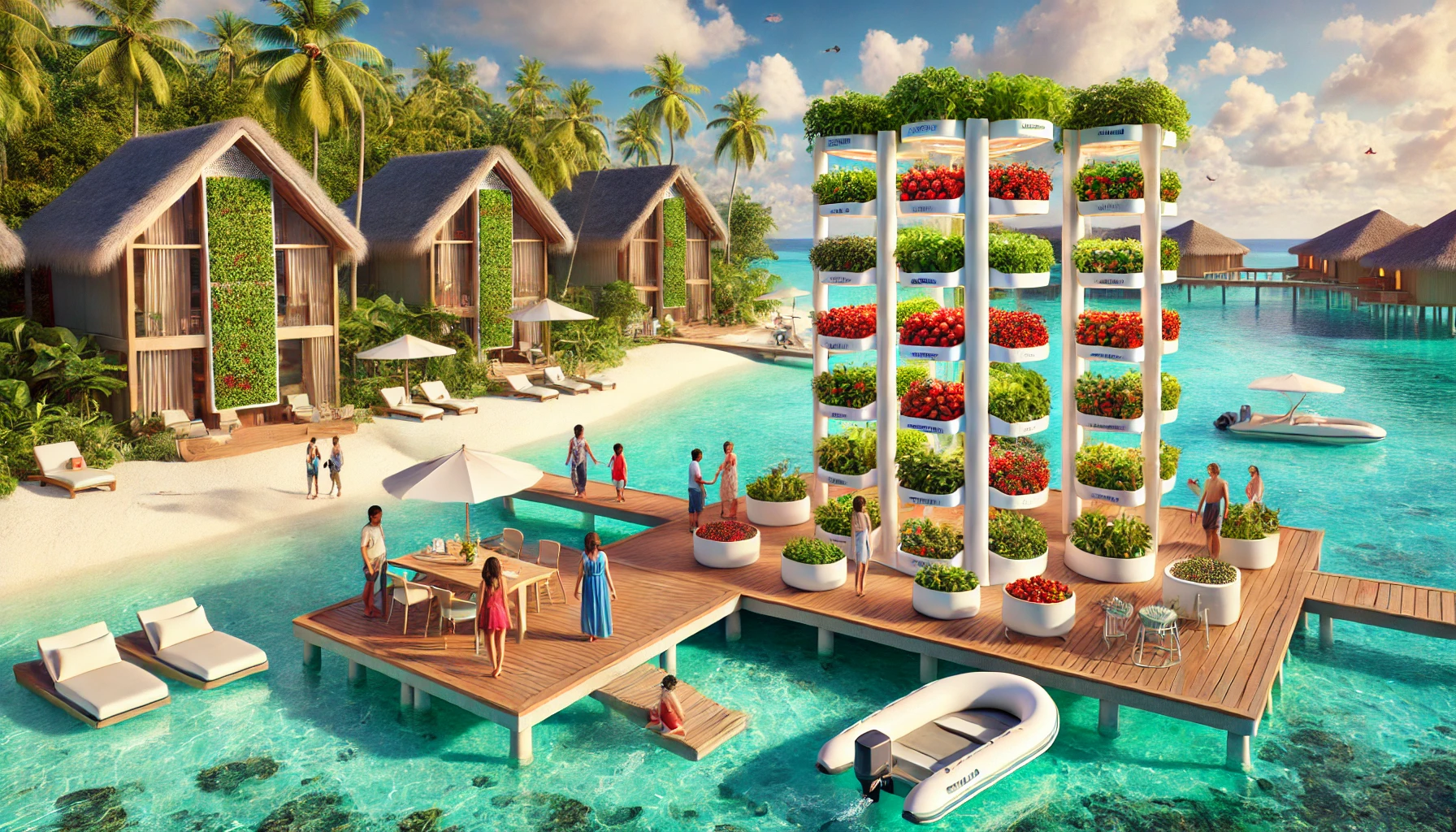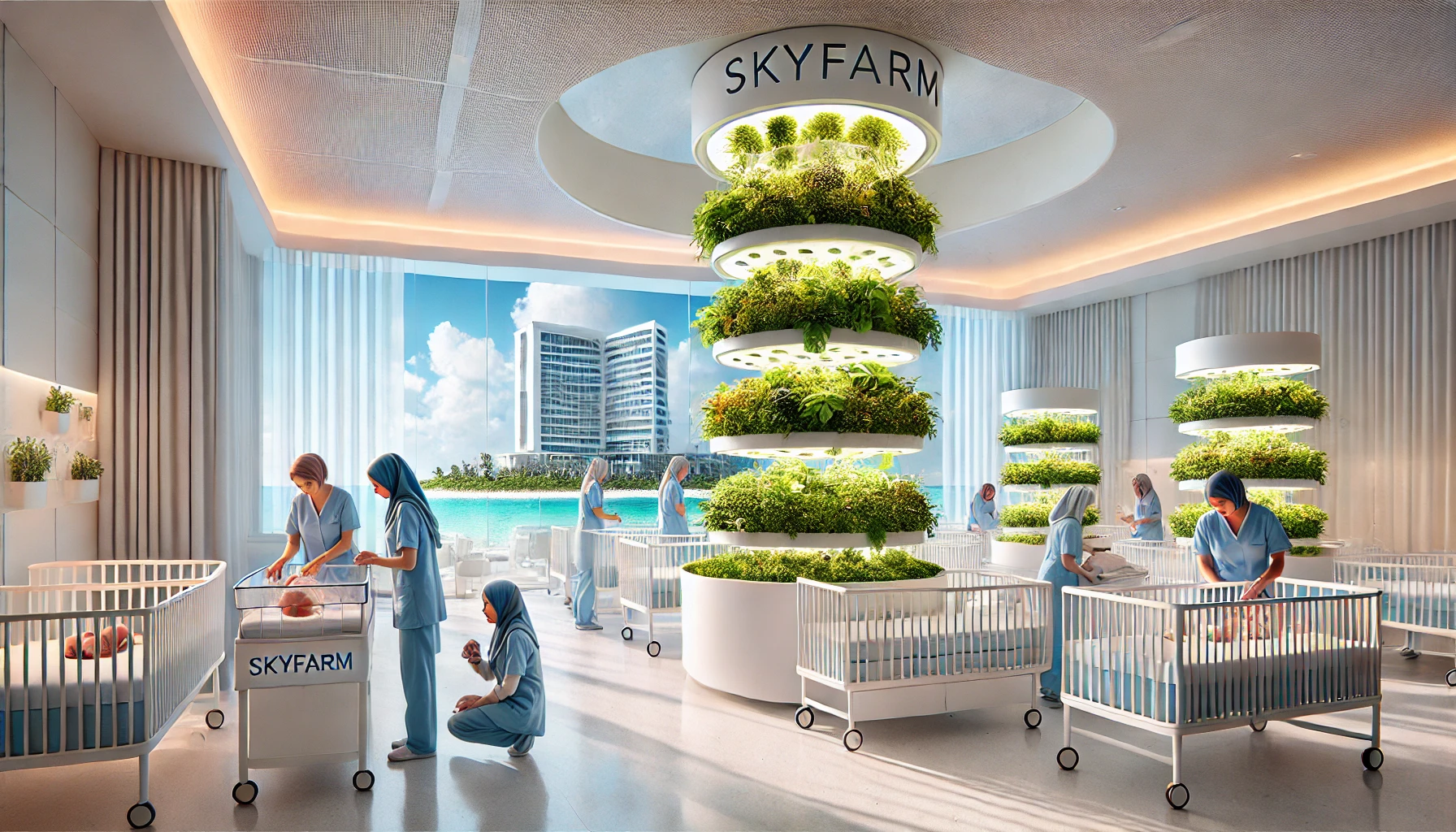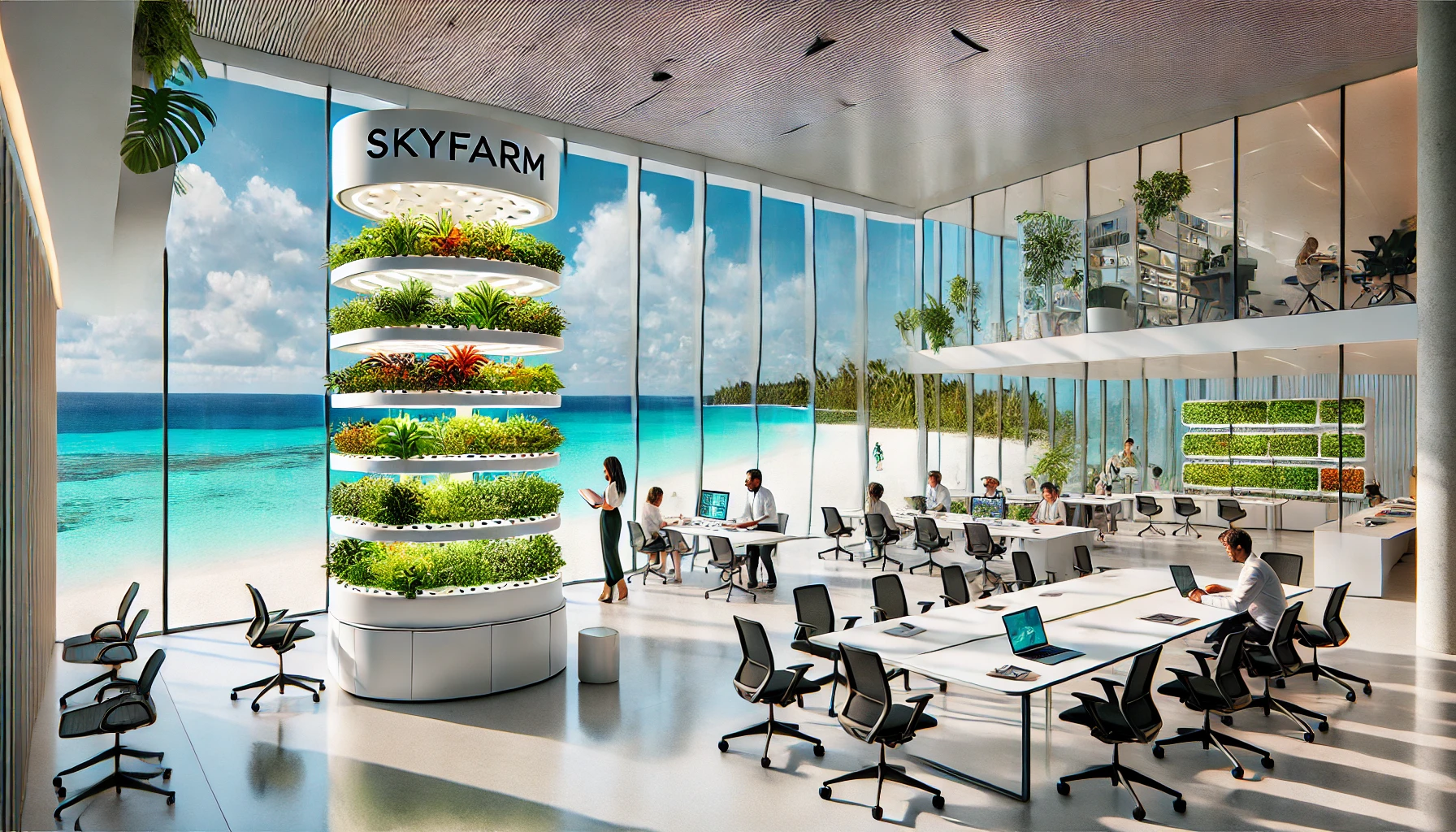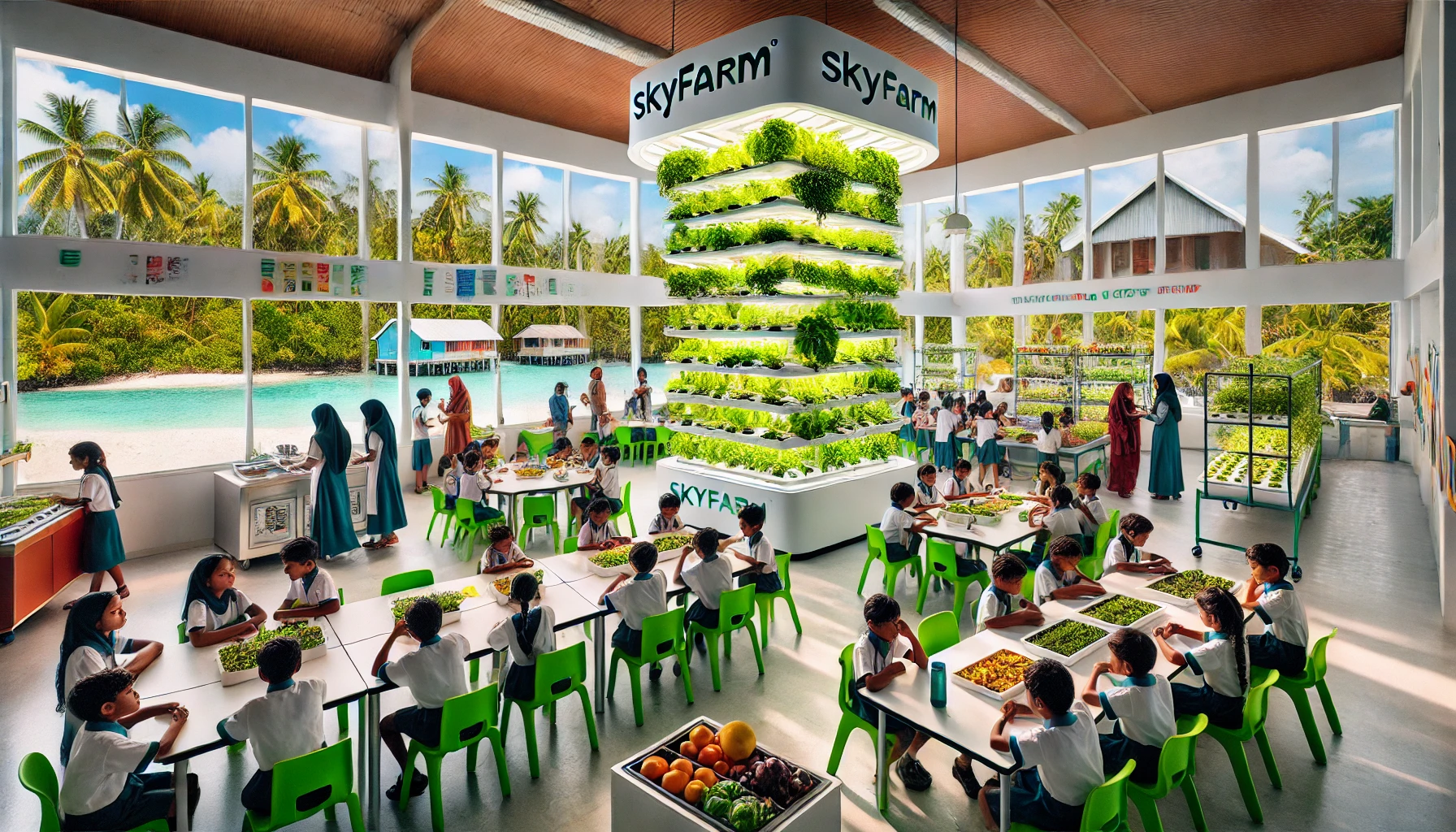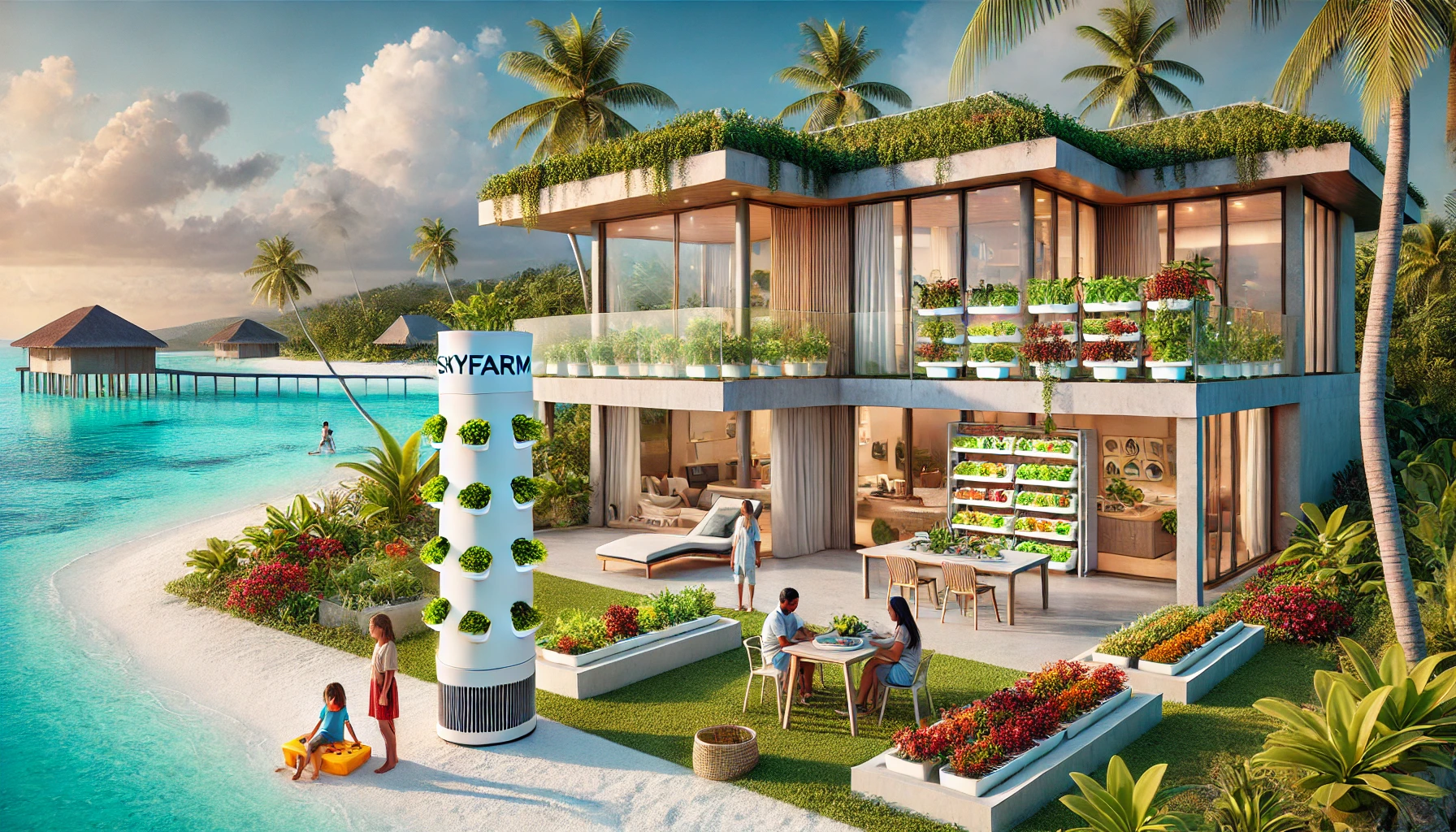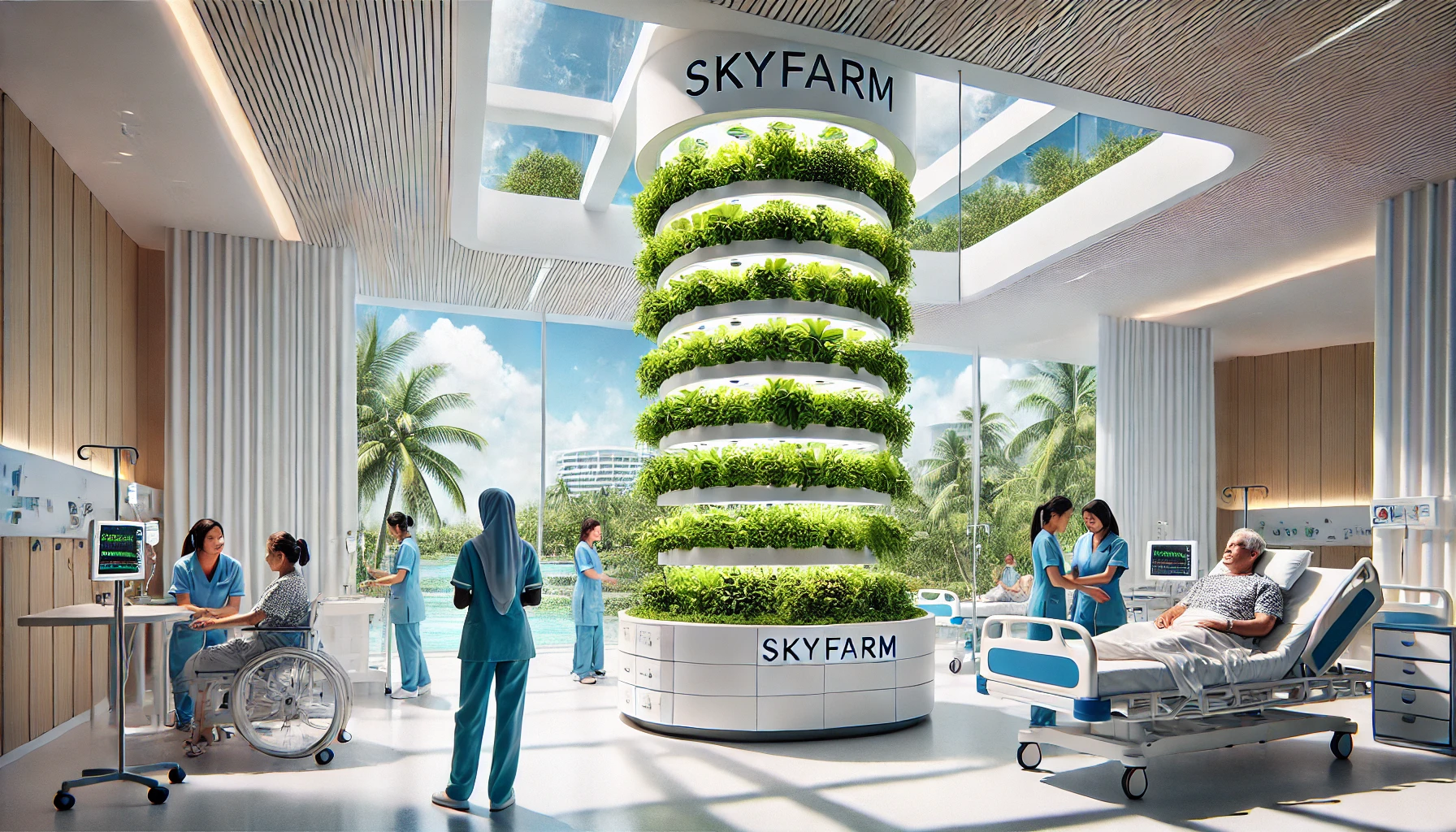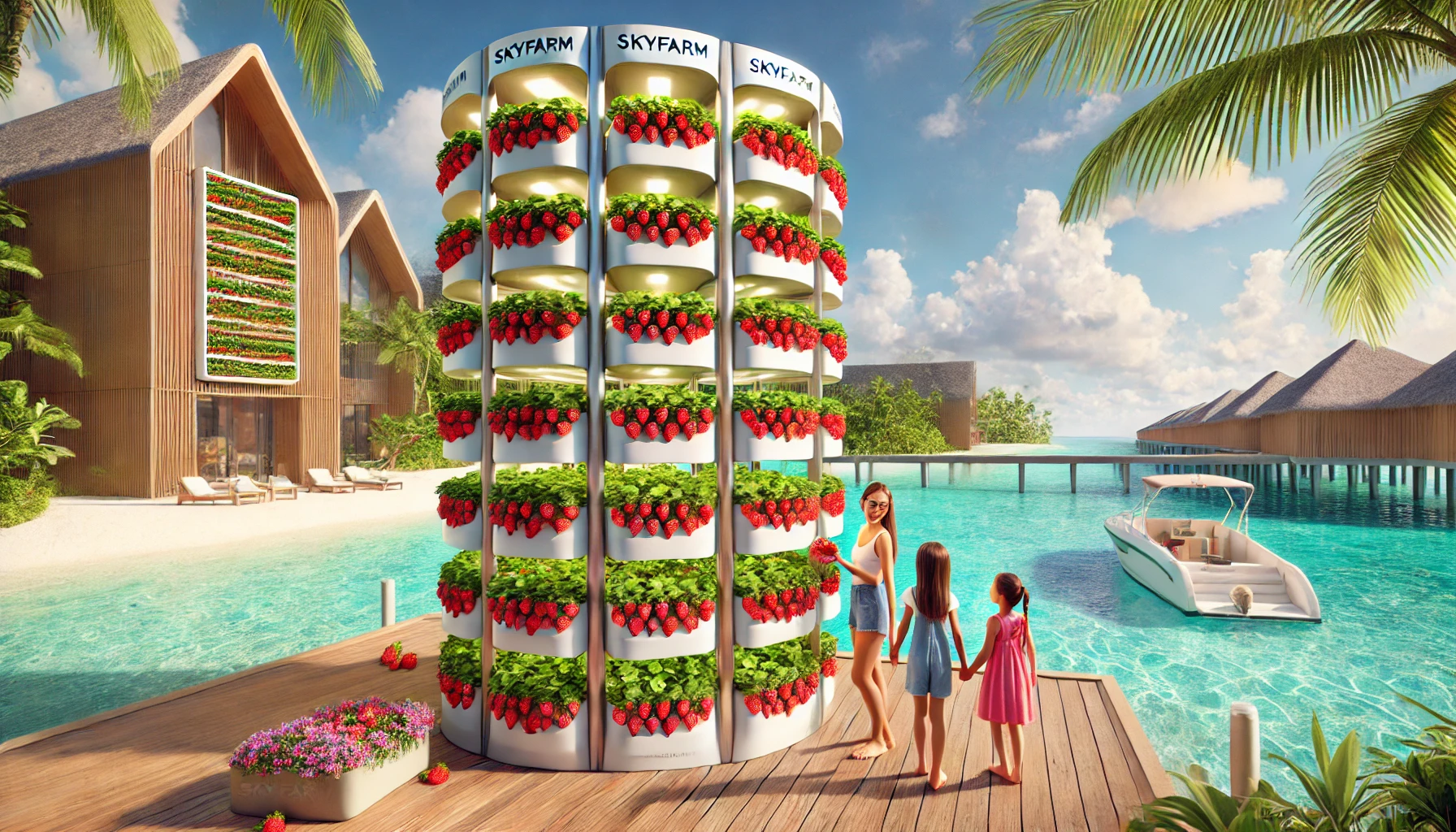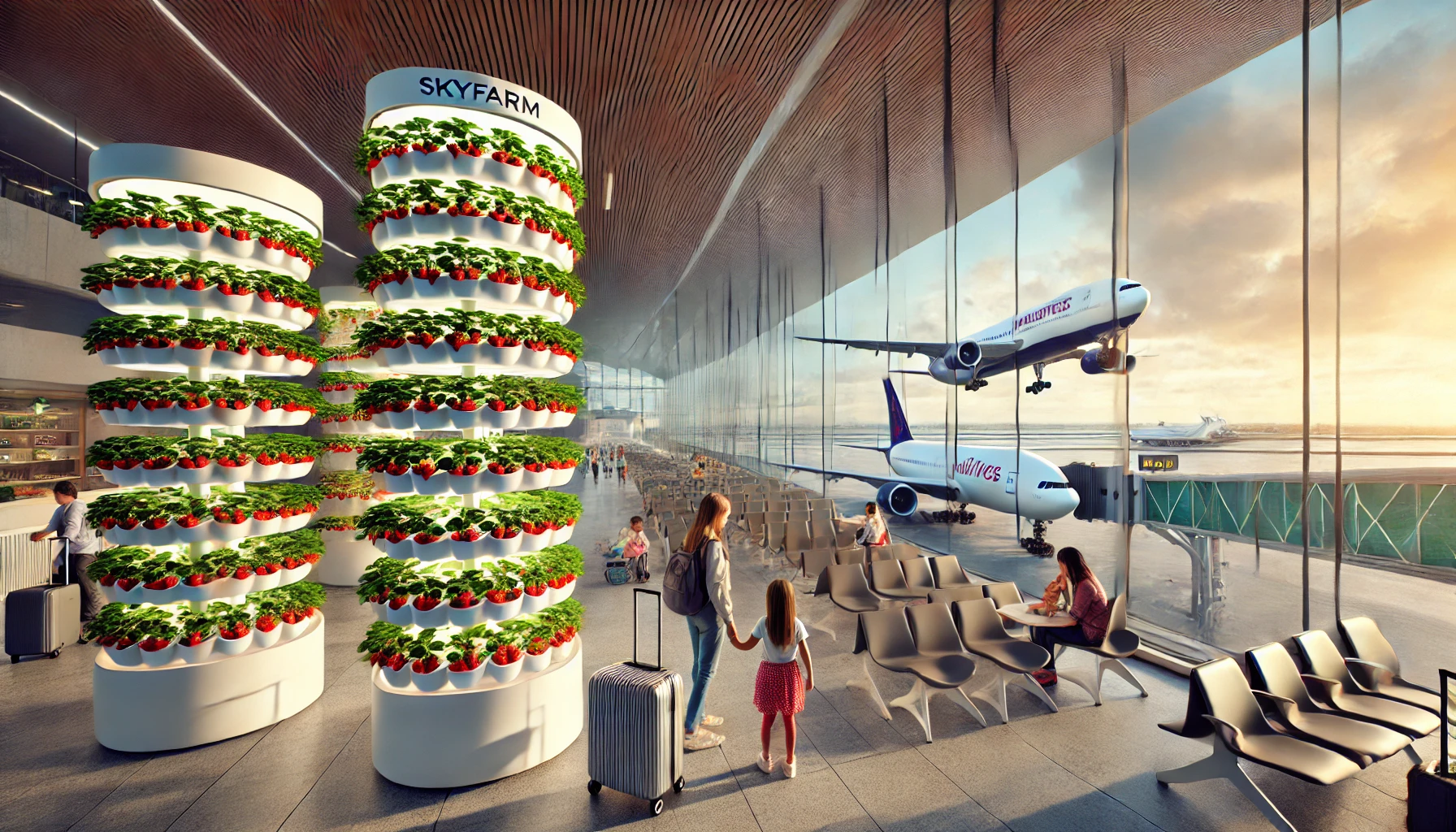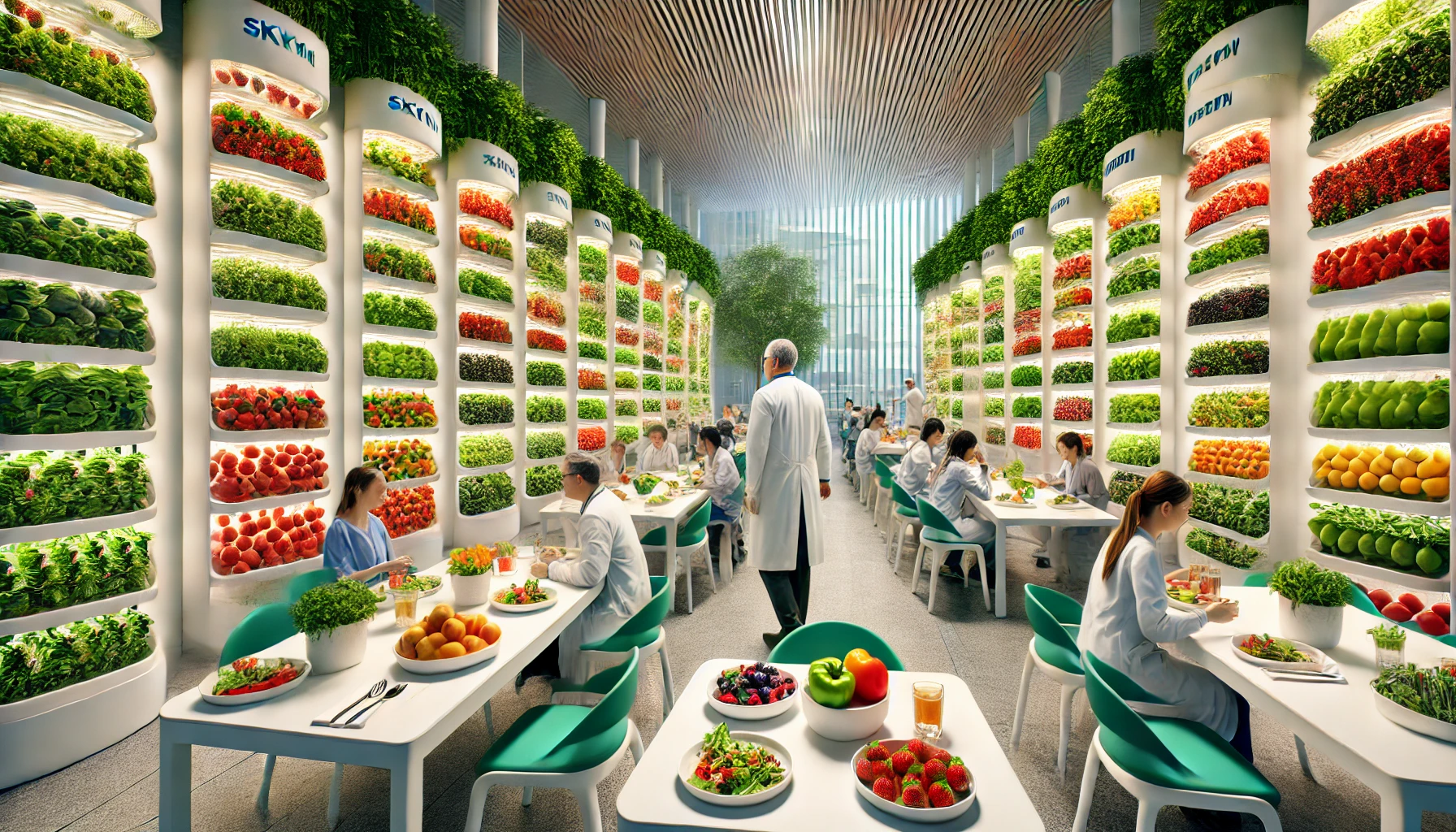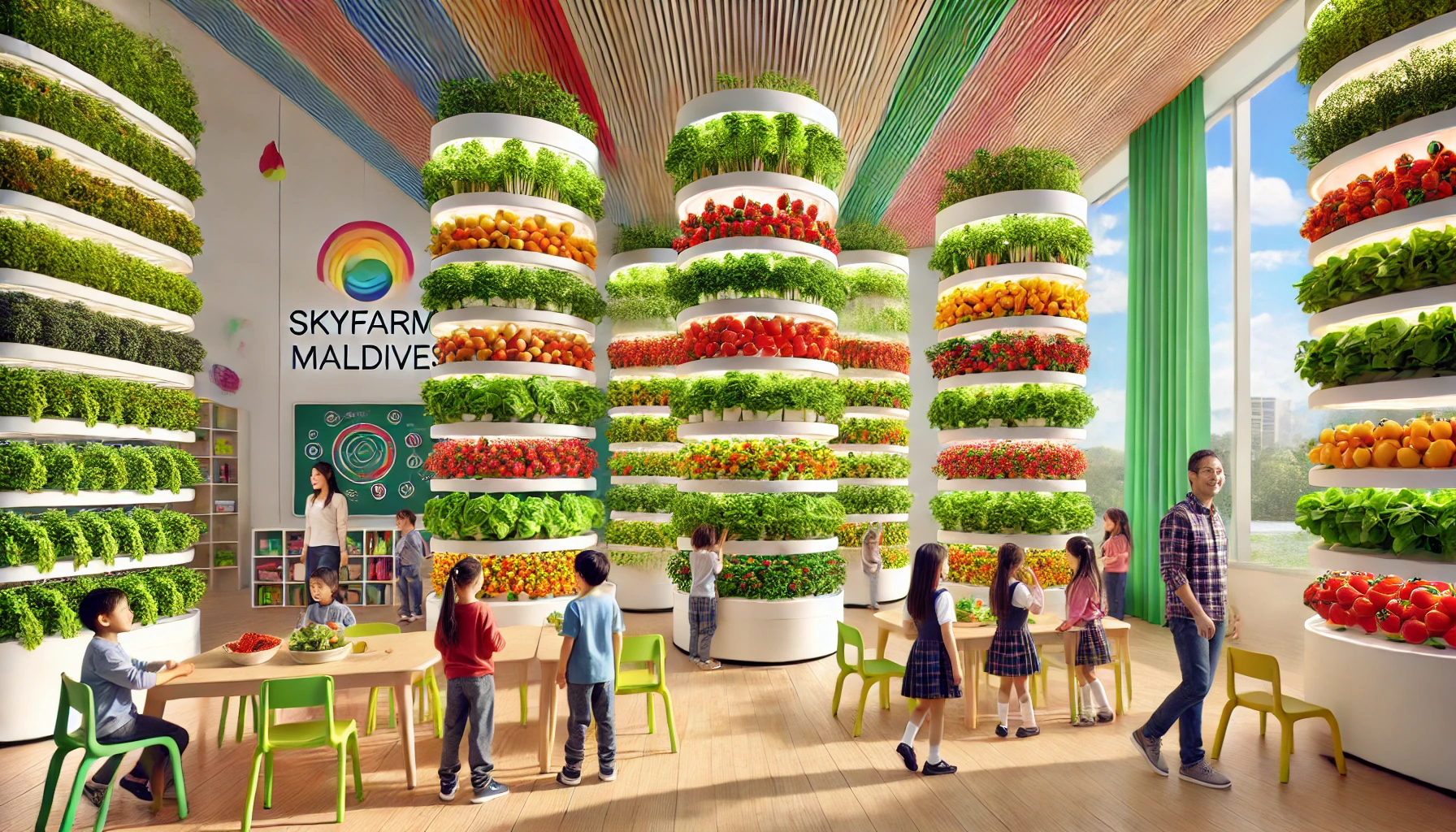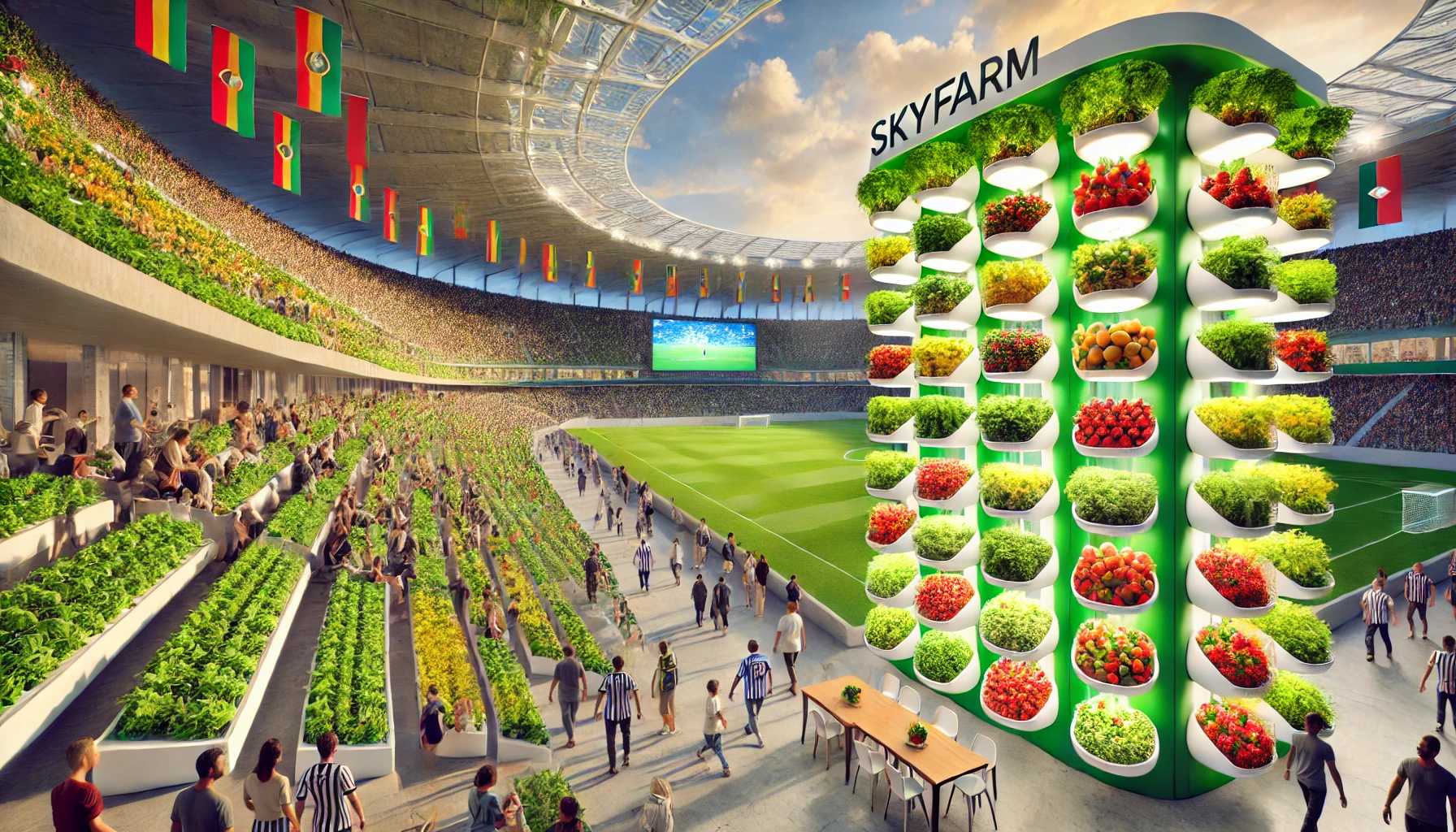Demographic Snapshot of the Maldives
About
Welcome to Sky Farm
Where Innovation Meets SustainabilityNestled in the heart of the Maldives, Sky Farm is revolutionizing agriculture with vertical farming technology. Our state-of-the-art hydroponic towers produce fresh, nutrient-rich crops year-round—maximizing space, conserving water, and championing sustainability.
Flavors, Elevated
We cultivate pesticide-free greens, herbs, and premium produce, ensuring chefs and home cooks alike have access to the freshest, most flavorful ingredients—no seasonal limitations, no compromise.
Join the Revolution
Sky Farm isn’t just a farm—it’s a movement. We’re shaping the future of food by combining innovation, sustainability, and culinary excellence. From farm to plate, every harvest is a step toward a greener, healthier world.
Sky Farm: Growing Tomorrow, Today.
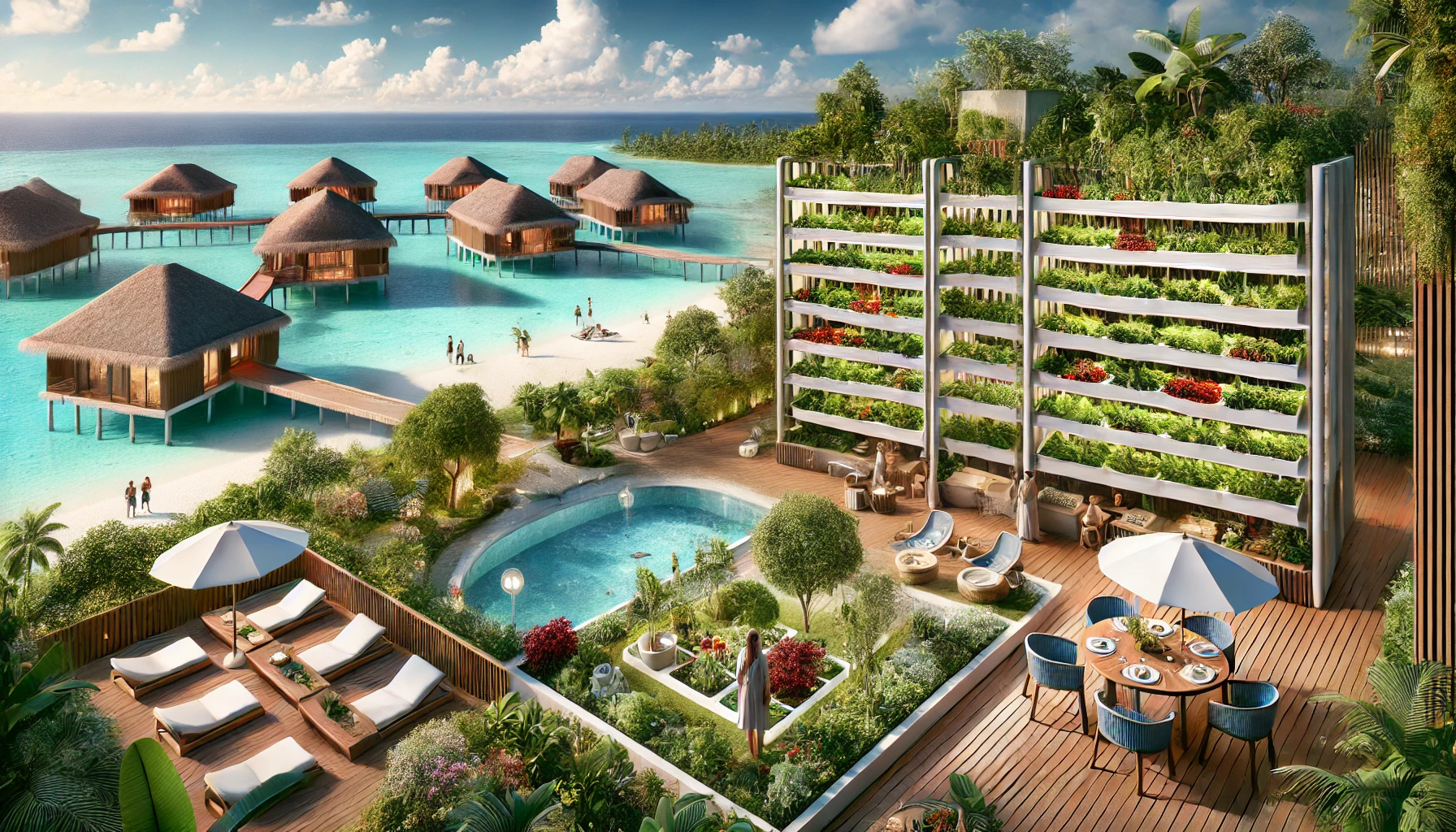
Vision and Mission
VISION
To revolutionize agriculture in the Maldives and beyond by creating a SUSTAINABLE, CLIMATE-RESILIENT FUTURE where fresh, nutrient-rich produce is accessible to all—reducing environmental impact while enhancing food security and culinary excellence.
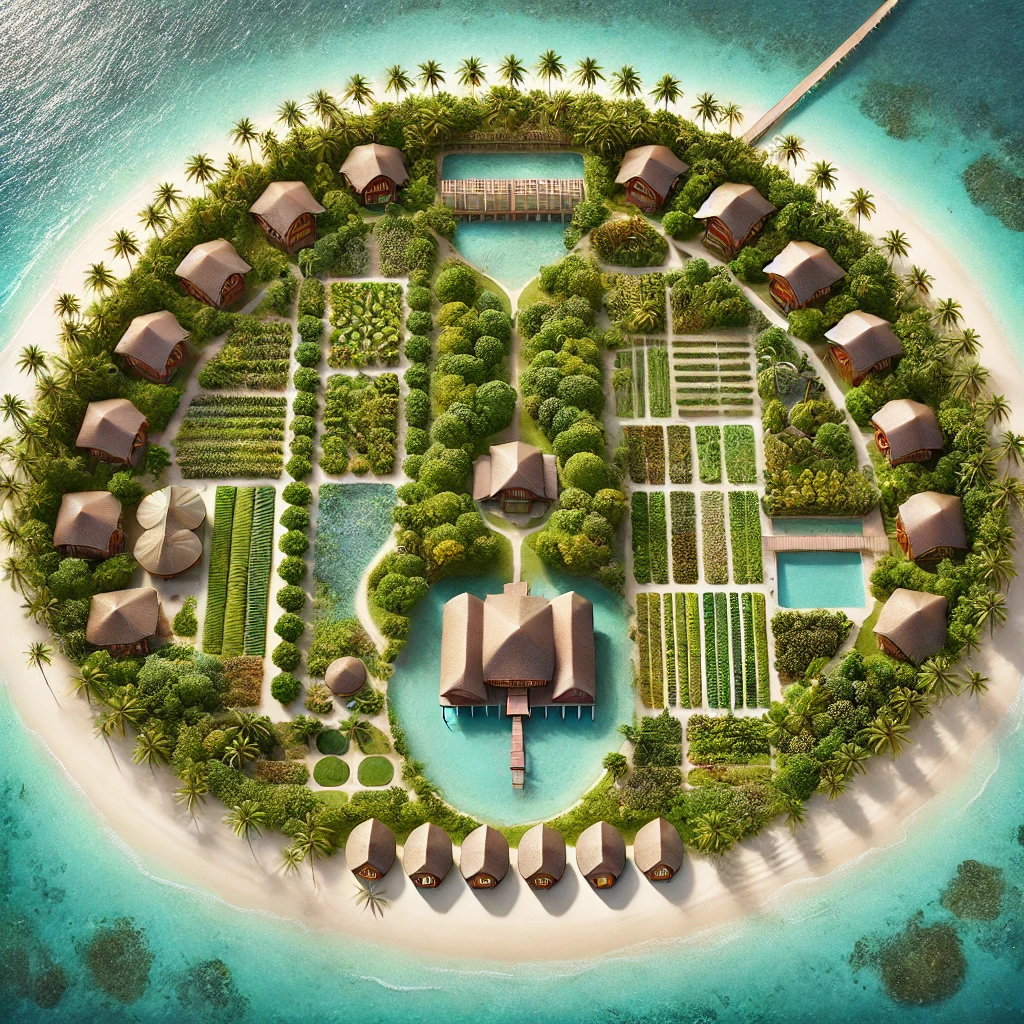
MISSION
INNOVATE FARMING
Utilize cutting-edge hydroponic and vertical farming technology
to maximize yield, minimize water use, and eliminate harmful pesticides.
SUSTAINABILITY FIRST
Commit to eco-friendly, zero-waste farming practices that reduce carbon
footprints and support a regenerative food system.
EMPOWER COMMUNITIES
Educate and collaborate with local farmers, chefs, and businesses to
promote self-sufficiency and food security.
FRESHNESS WITHOUT LIMITS
Provide premium-quality, pesticide-free greens and herbs that elevate culinary experiences,
available year-round without seasonal constraints.
SHAPE THE FUTURE
Lead the agritech revolution in the Maldives, setting new standards for
sustainable urban farming across island nations and beyond.
SKY FARM: GROWING TOMORROW, TODAY.
Vertical Farming
CULTIVATING FLAVORS IN THE SKIES
VERTICAL FARMING: THE FUTURE OF FOOD PRODUCTION
As the world’s population rises, so does the demand for fresh, high-quality food. Traditional farming alone can't meet this need, but vertical farming is revolutionizing how we grow, using less space, less water, and no pesticides—all while producing more food, faster.
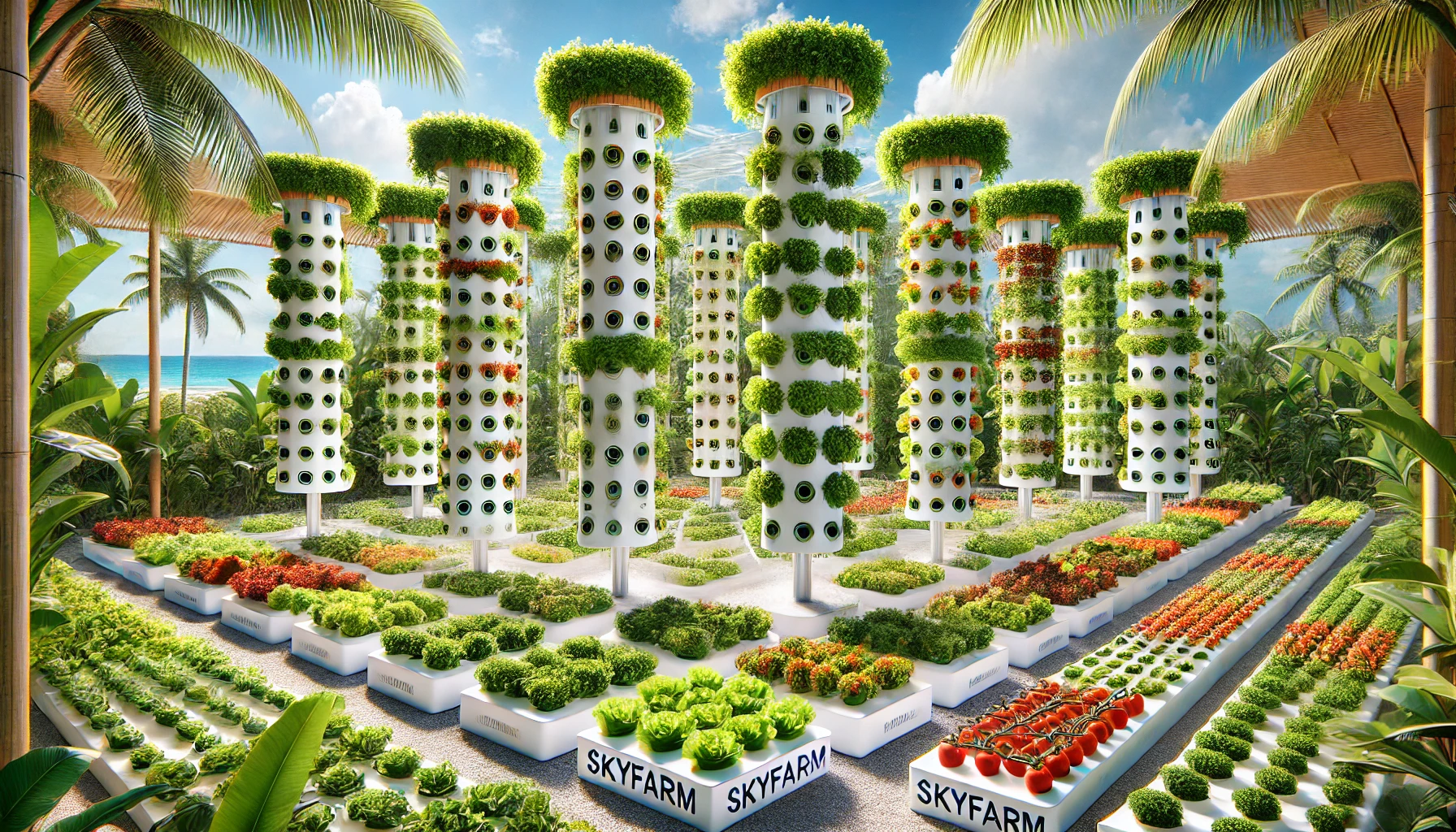
HOW IT WORKS
🌿 SPACE EFFICIENCY
Crops grow in stacked layers, maximizing land use and thriving in urban environments like warehouses, skyscrapers, and shipping containers.
💡 SMART LIGHTING
A perfect blend of natural and LED lighting ensures plants get the right amount of light at all times, enhancing growth and flavor.
🌱 SUSTAINABILITY
Vertical farms use 95% less water, reduce food waste, and require fewer or no pesticides, making farming more eco-friendly than ever.
🌍 SOILLESS GROWING
Innovative techniques like hydroponics and aeroponics replace traditional soil with organic materials like coconut husks—providing plants with optimal nutrients.Vertical farming isn’t just a trend; it’s the future of food production—offering fresher, cleaner, and more sustainable produce for the world.
Future Prospects
Looking ahead, Sky Farm is set to broaden its reach by adopting cutting-edge technologies like aquaponics and advanced robotics to boost productivity and sustainability. With plans to replicate its successful model in other regions, the aim is to spark a global shift towards more sustainable agricultural practices. In the Maldives, Sky Farm stands as a symbol of innovation, showcasing how modern technology can transform agriculture and pave the way for a healthier planet.
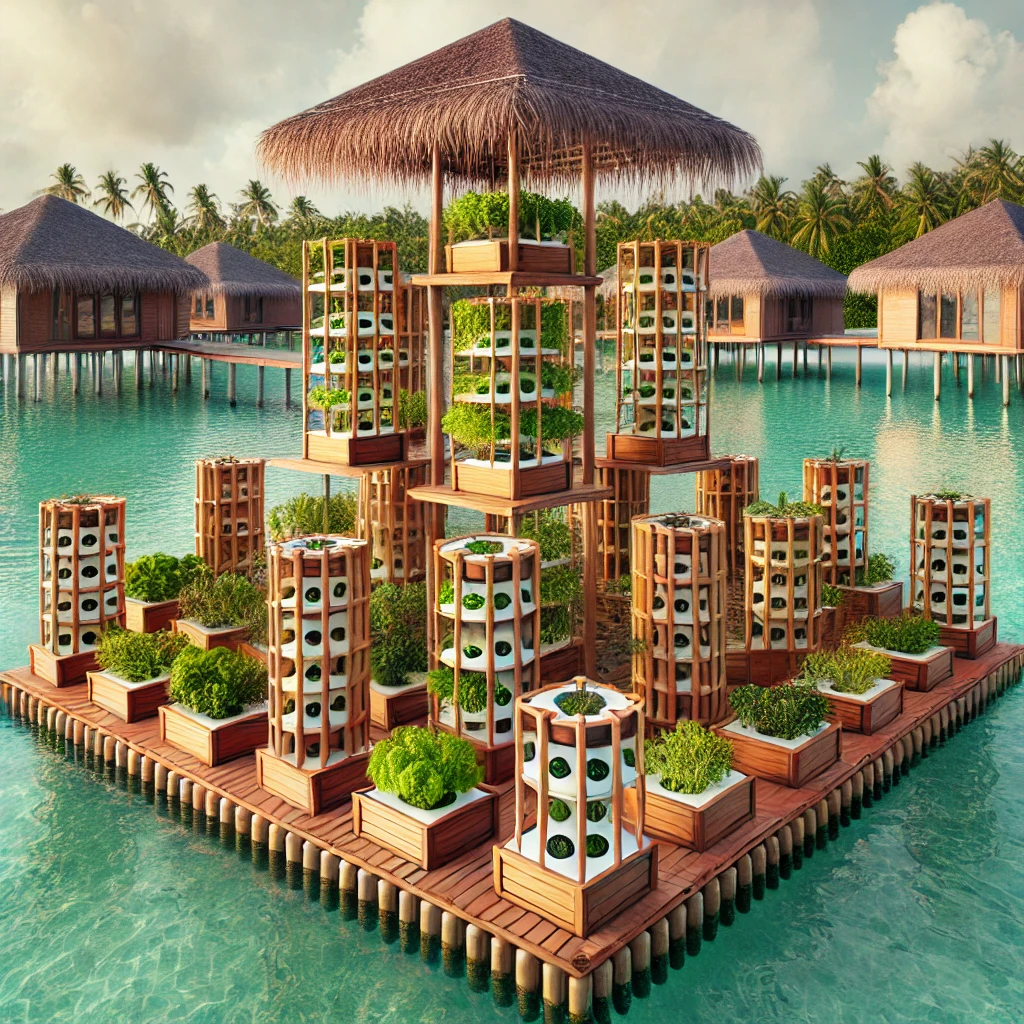
Product Offering
At Sky Farm, the produce includes a diverse selection of leafy greens, aromatic herbs, and exotic vegetables, all cultivated without pesticides or harmful chemicals. Known for their exceptional freshness, quality, and nutrient density, these products are highly sought after by both local markets and upscale restaurants in need of premium ingredients. Sky Farm's commitment to clean, sustainable farming ensures that every harvest supports a healthier, more vibrant food ecosystem.
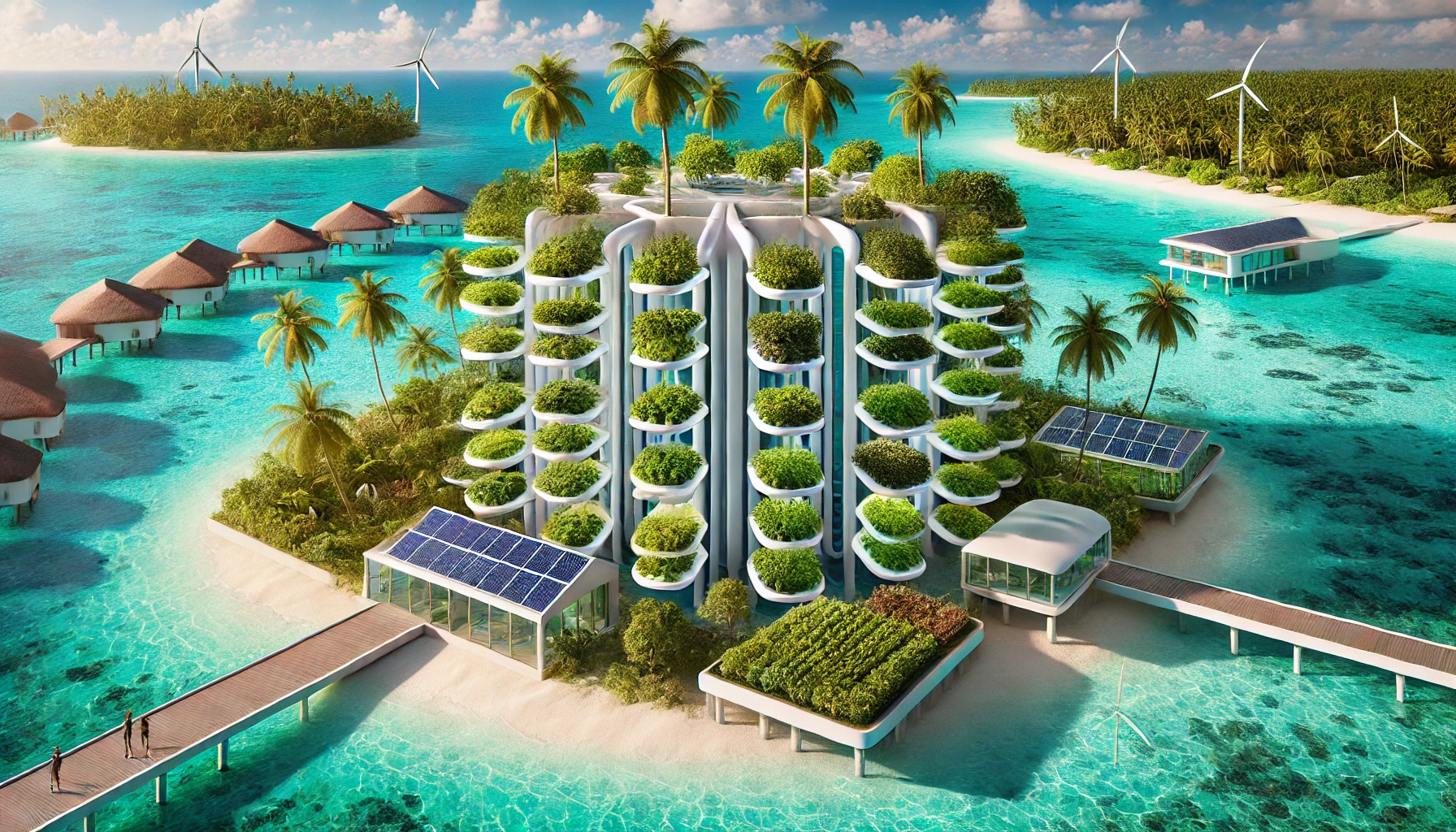
Sustainability and Technology
At Sky Farm, sustainability is at the heart of everything they do. The farm runs on renewable energy, minimizing its environmental footprint. Water is recycled, and organic nutrients are used to maintain an eco-friendly production cycle. To further enhance efficiency, AI-driven systems monitor plant health and optimize growing conditions, ensuring consistently high yields and top-notch quality. This commitment to innovation and the environment makes Sky Farm a leader in sustainable farming practices.
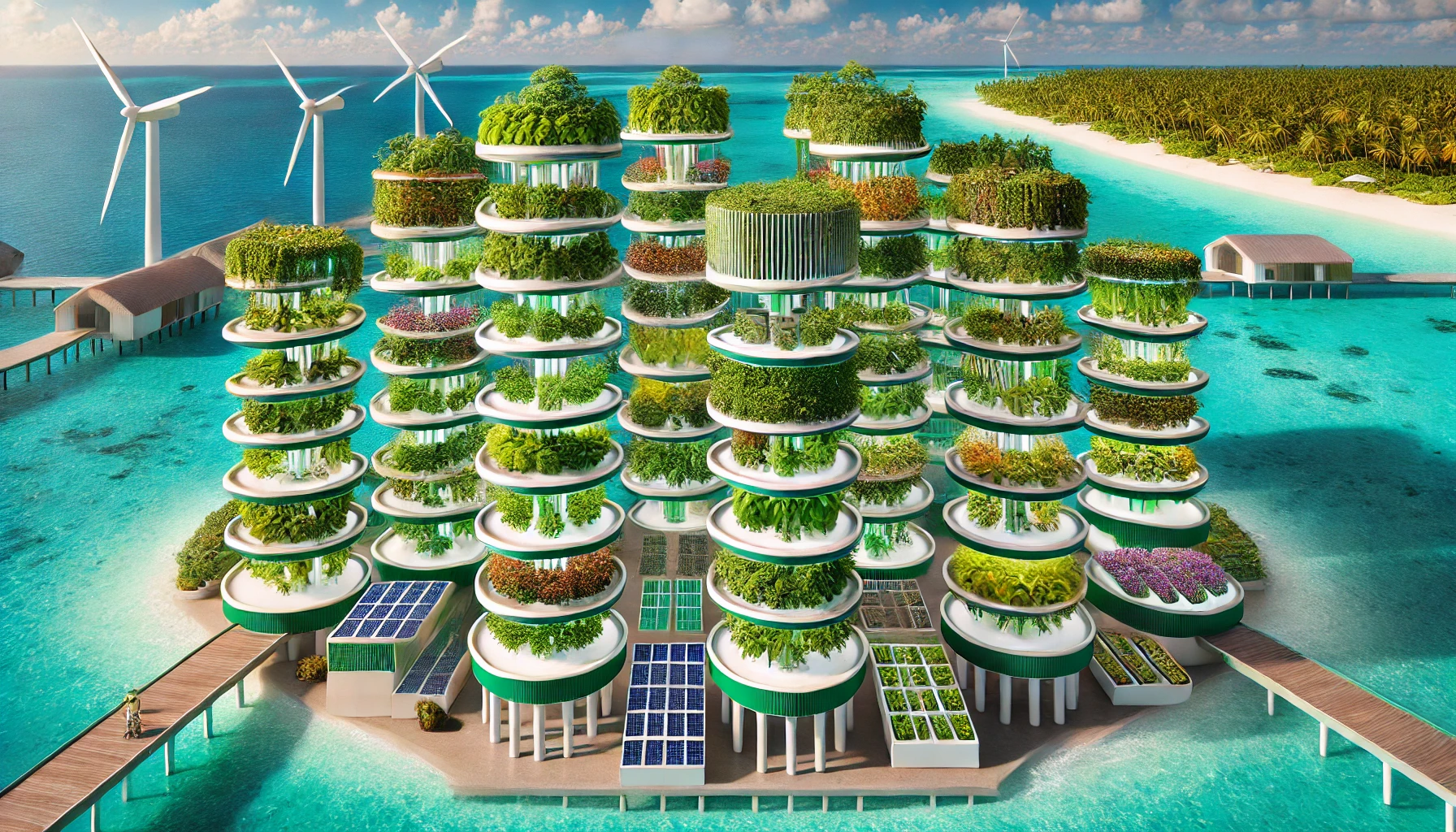
Community and Educational Outreach
Sky Farm is dedicated to fostering community engagement and education. Through workshops and seminars, the farm shares valuable insights on sustainable farming techniques and the importance of eco-friendly practices. These programs, aimed at students, aspiring farmers, and the general public, help raise awareness and cultivate a deeper understanding of sustainable agriculture. By empowering the community with knowledge, Sky Farm is helping inspire the next generation of environmentally conscious farmers and consumers.
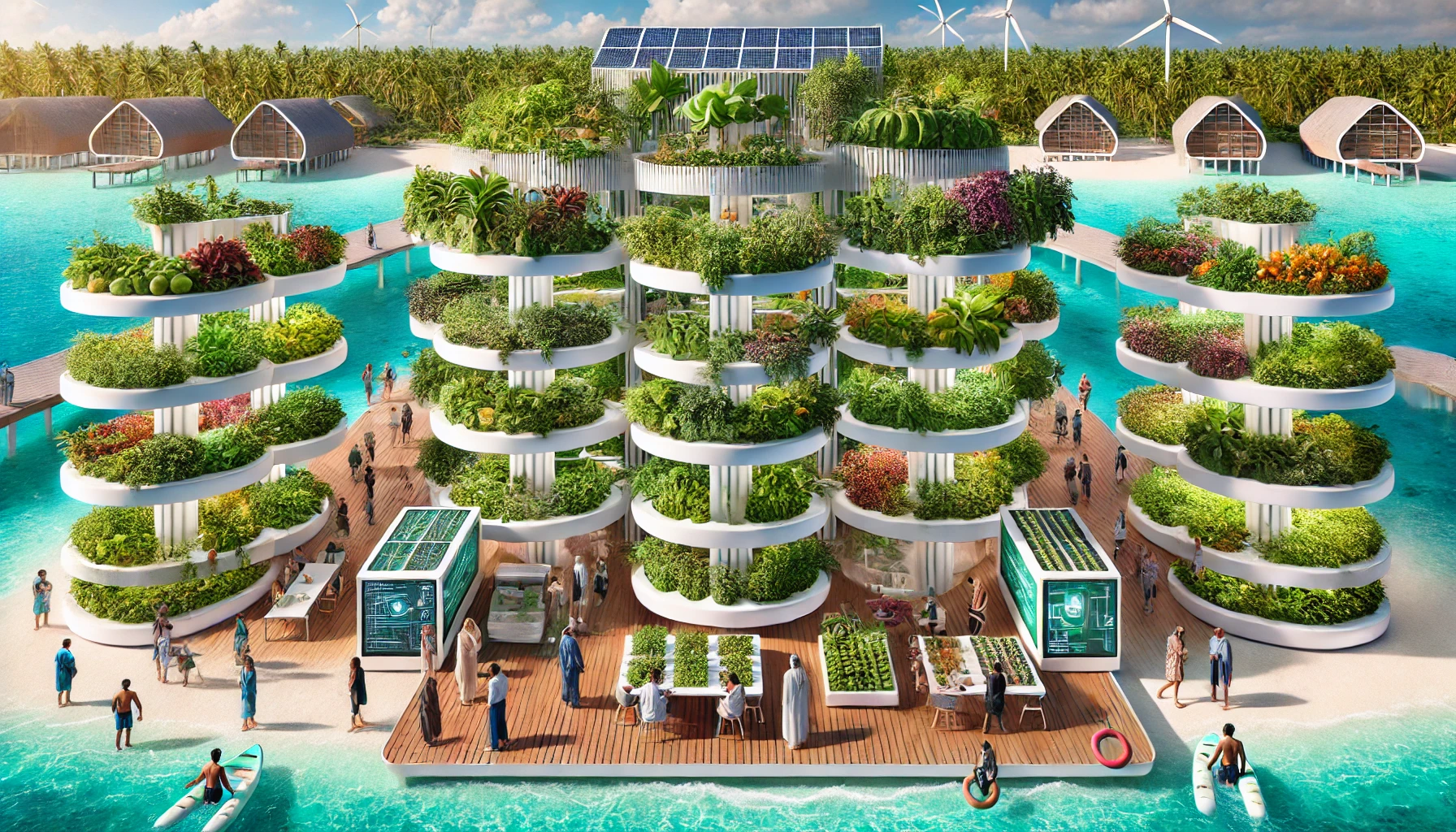
The Advantages of Sky Farm’s Vertical Farming
Optimized Crop Production
Efficient Use of Resources
Sky Farm’s vertical design maximizes space, allowing significantly higher production per square foot than traditional methods. By utilizing stacked layers, the farm turns limited land into a productivity powerhouse, boosting overall yields and profitability.
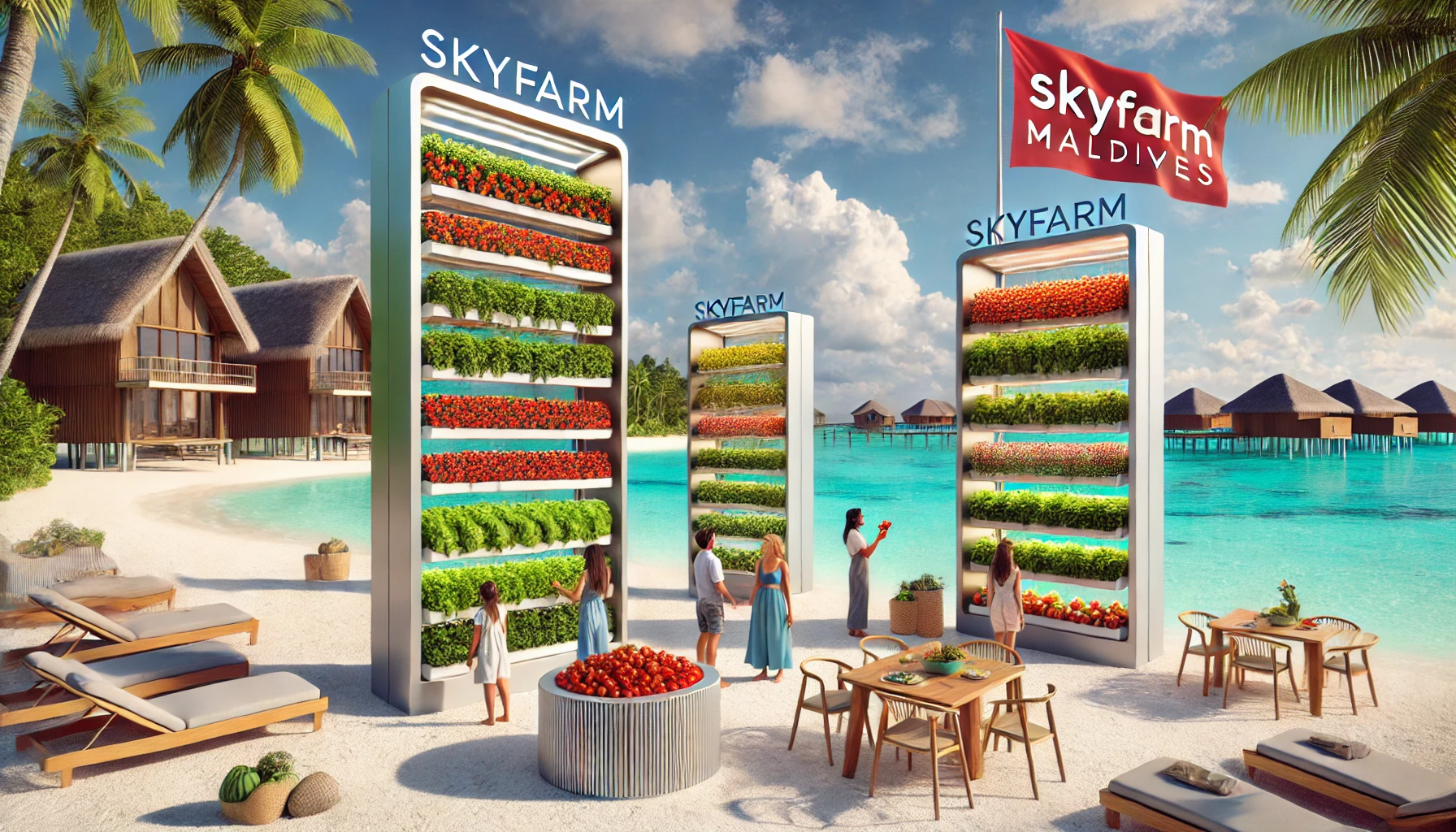
Reduced Transportation Costs
By positioning Sky Farm near urban centers in the Maldives, the farm cuts down on the need for long-haul transportation. This proximity to local markets reduces transportation costs and significantly lowers the carbon footprint associated with produce distribution. Not only does this make fresh, sustainable food more accessible, but it also supports a greener, more efficient food supply chain.
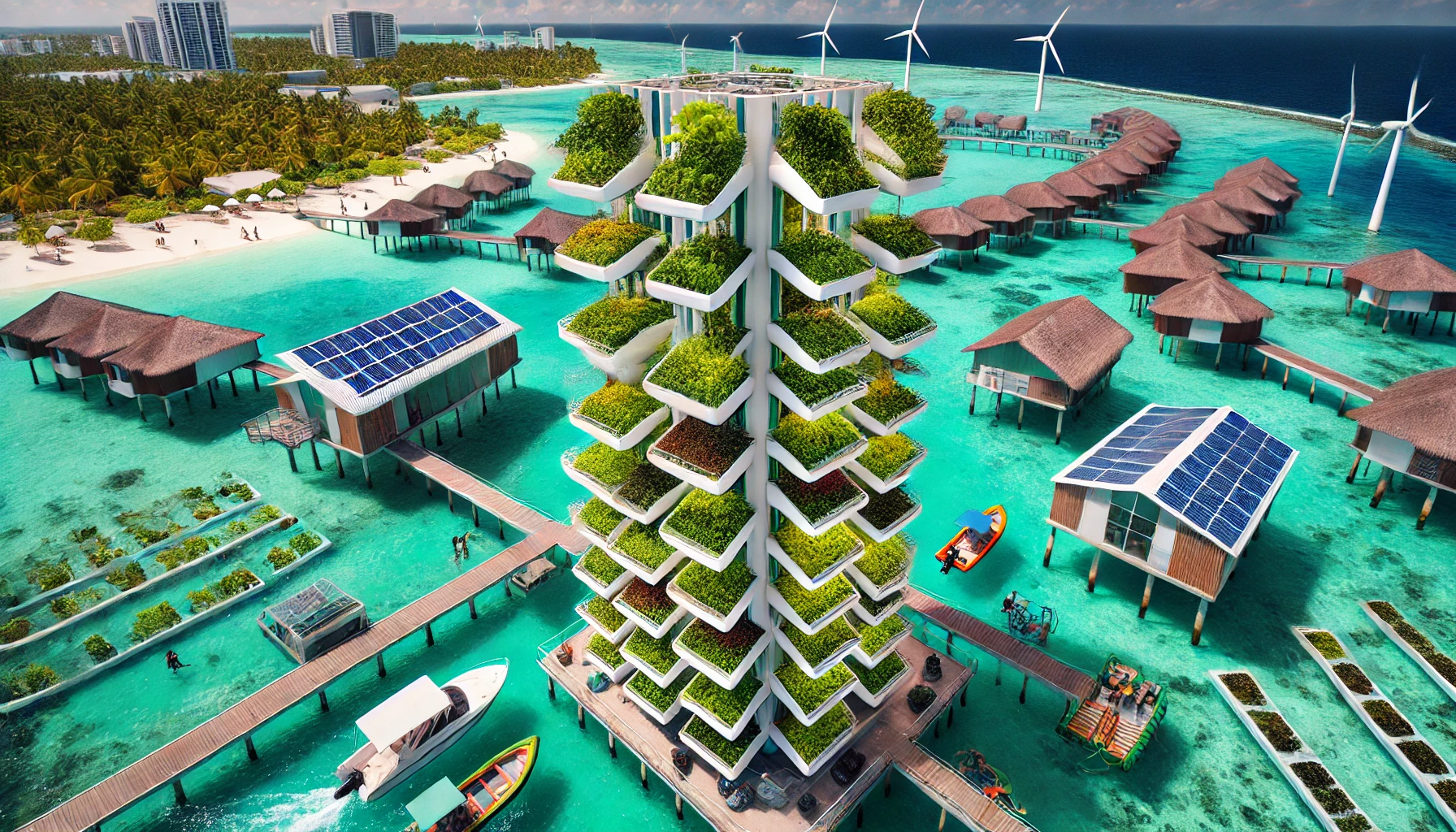
Lower Water & Energy Usage
At Sky Farm, hydroponic systems are used to recirculate water, significantly reducing water consumption compared to traditional soil-based farming. This water efficiency not only conserves a valuable resource but also leads to substantial cost savings. Furthermore, the integration of renewable energy sources and energy-efficient designs helps minimize energy costs, making Sky Farm a model of sustainability and cost-effectiveness in modern agriculture.
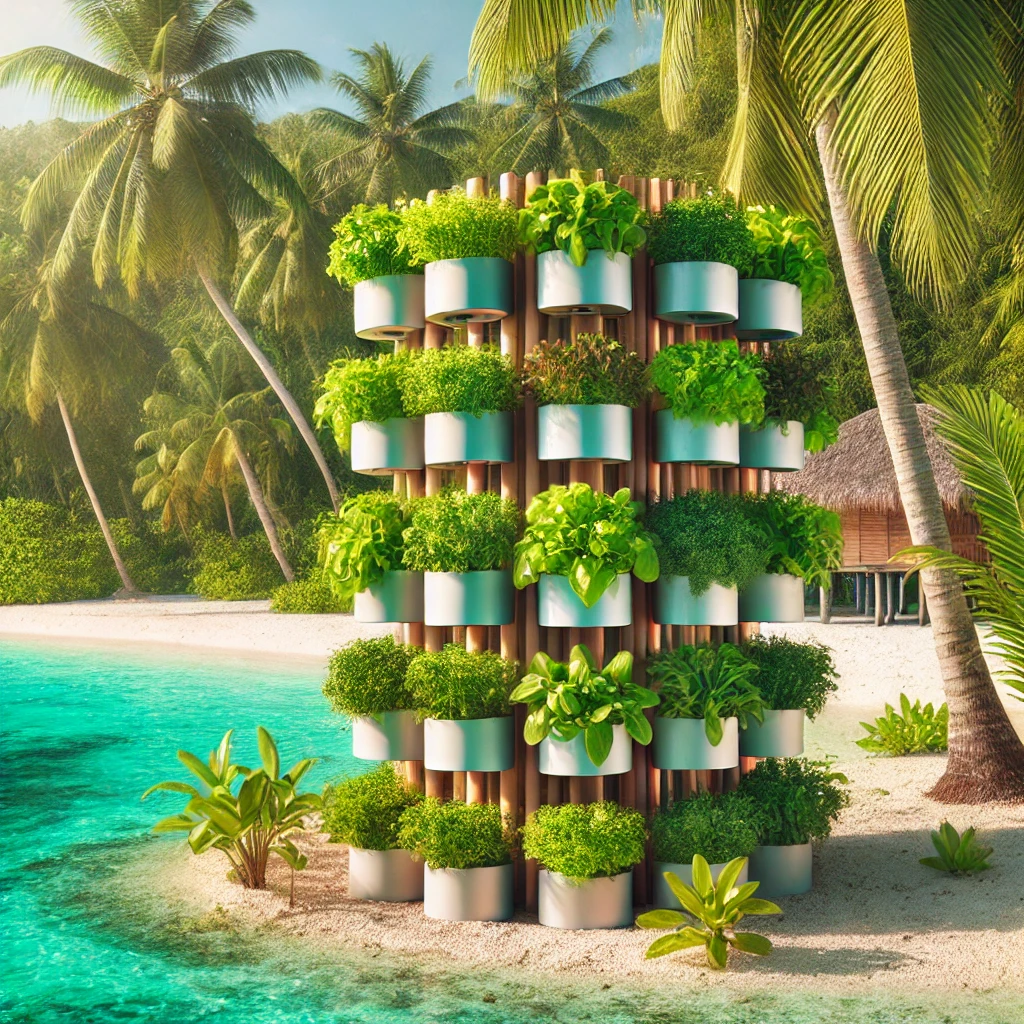
Consistency & Reliability of Production
At Sky Farm, the ability to control key environmental factors such as light, temperature, and humidity ensures that crop production is less reliant on seasonal changes or unpredictable weather. This level of control guarantees a consistent, year-round production cycle, providing stable income streams and minimizing the risk of crop failures due to adverse weather conditions. Sky Farm’s reliability makes it a dependable source of fresh produce, regardless of external factors.
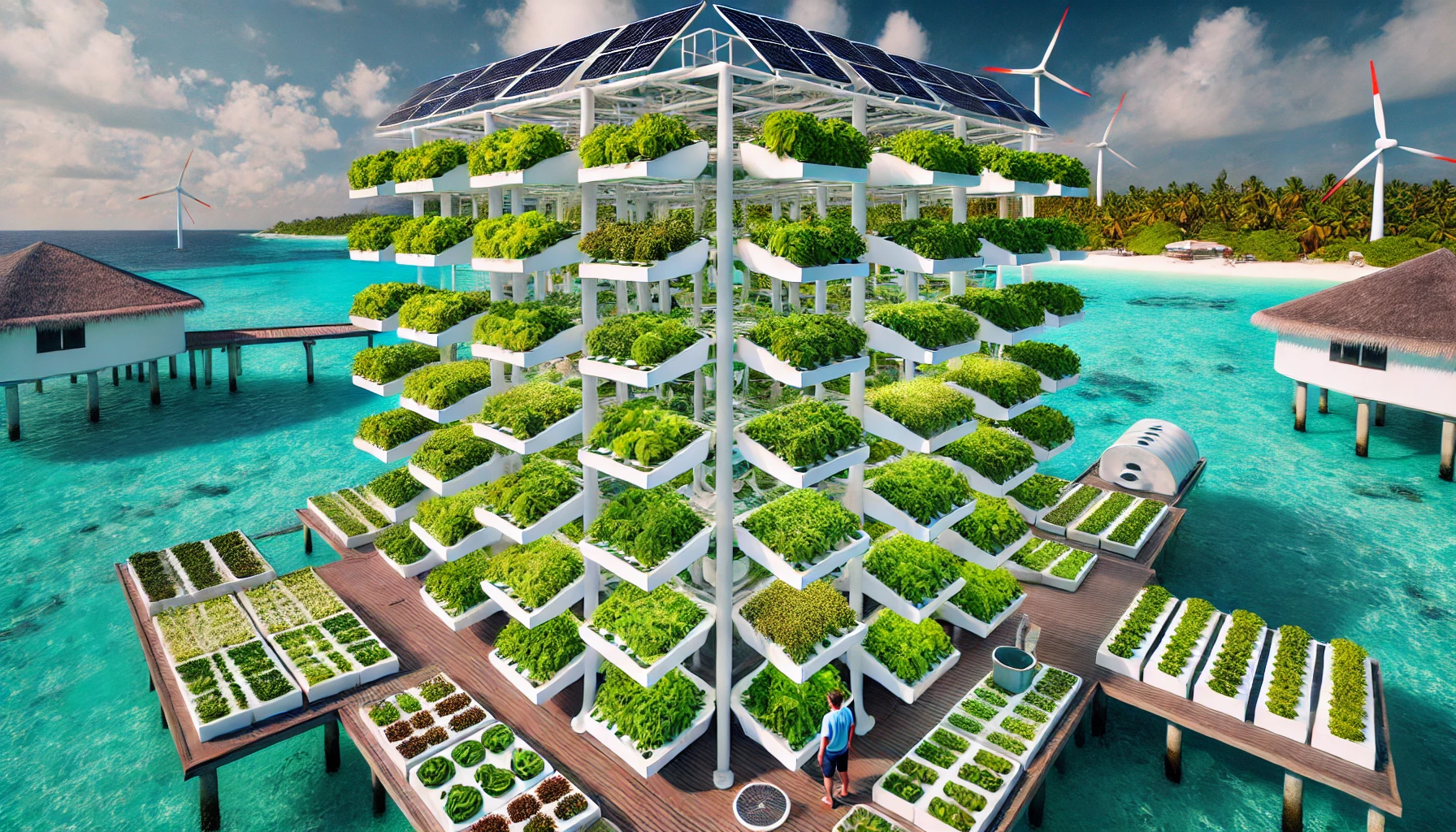
Premium Product Pricing
The organic, sustainably grown produce from Sky Farm often commands a higher market price. With growing consumer demand for environmentally friendly and health-conscious products, people are increasingly willing to pay a premium. This trend allows Sky Farm to enjoy significantly enhanced profit margins while providing fresh, high-quality produce that meets the needs of conscious consumers.
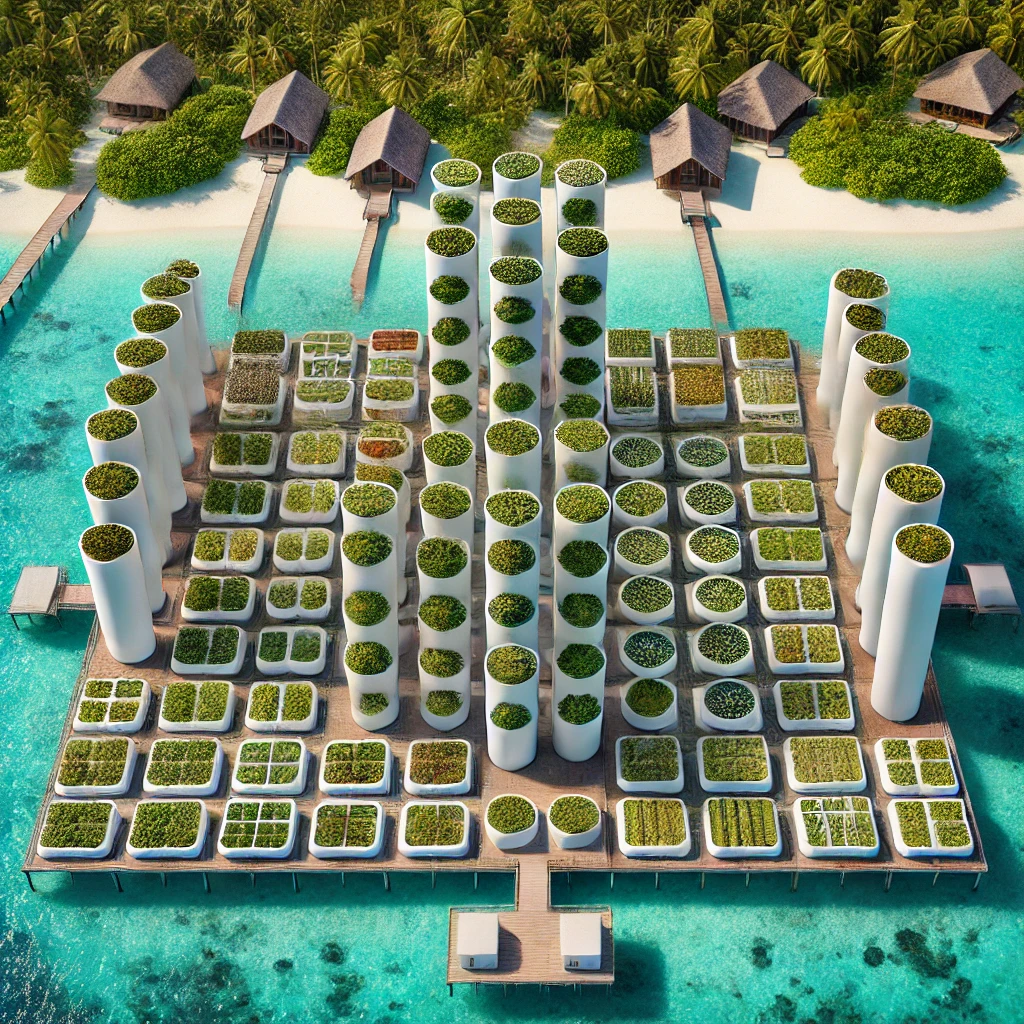
Reduced Pesticide Use
By operating in a controlled indoor environment, Sky Farm minimizes the risk of pests and diseases, significantly reducing the need for pesticides and herbicides. This results in savings on chemicals while meeting the rising consumer demand for organic produce. As a result, Sky Farm benefits from both lower operational costs and the ability to offer healthier, chemical-free products, further boosting economic returns.
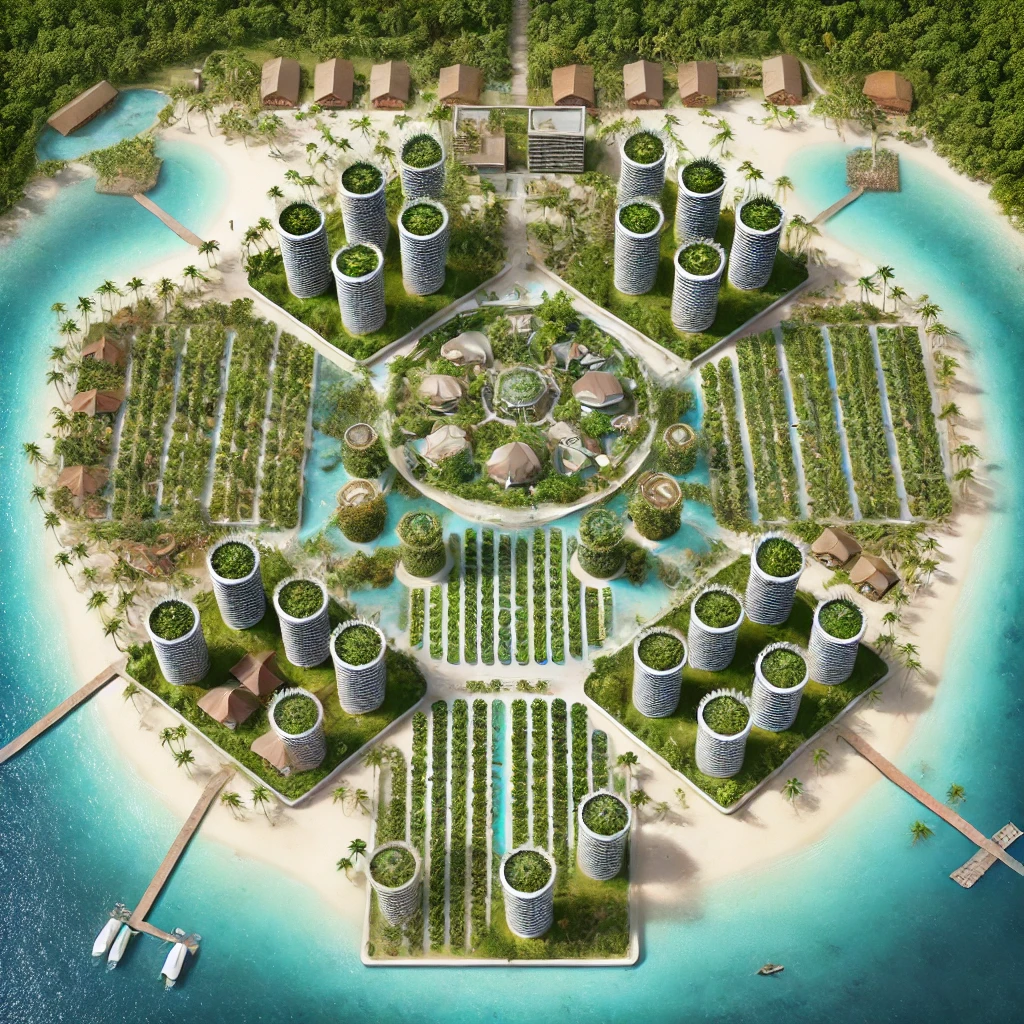
Scalability
The modular design of vertical farming makes expansion straightforward and cost-effective. As demand grows, Sky Farm can scale operations both vertically and horizontally, without the need for large land acquisitions typical of traditional farming. This flexibility allows for rapid growth and the ability to adapt to market demands while keeping costs down.
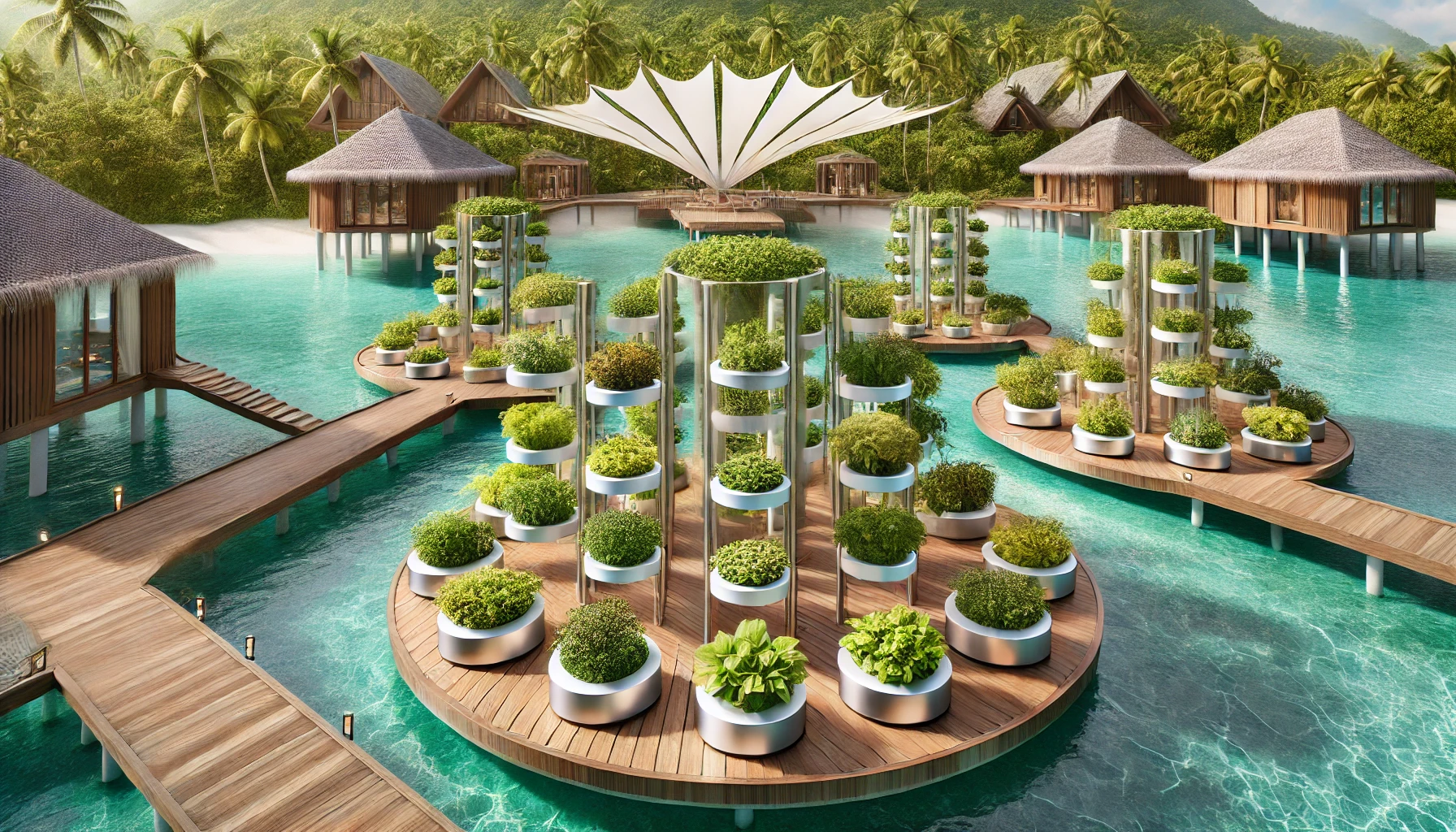
Technological Advancements
Investing in advanced technologies like AI and IoT for monitoring plant health and optimizing growing conditions brings significant efficiencies and cost savings over time. These technologies help improve yields, reduce waste, and streamline farm management. By leveraging these innovations, Sky Farm not only champions sustainable agriculture but also ensures its economic viability and growth potential. This forward-thinking approach positions Sky Farm as a compelling model for the future of agriculture.
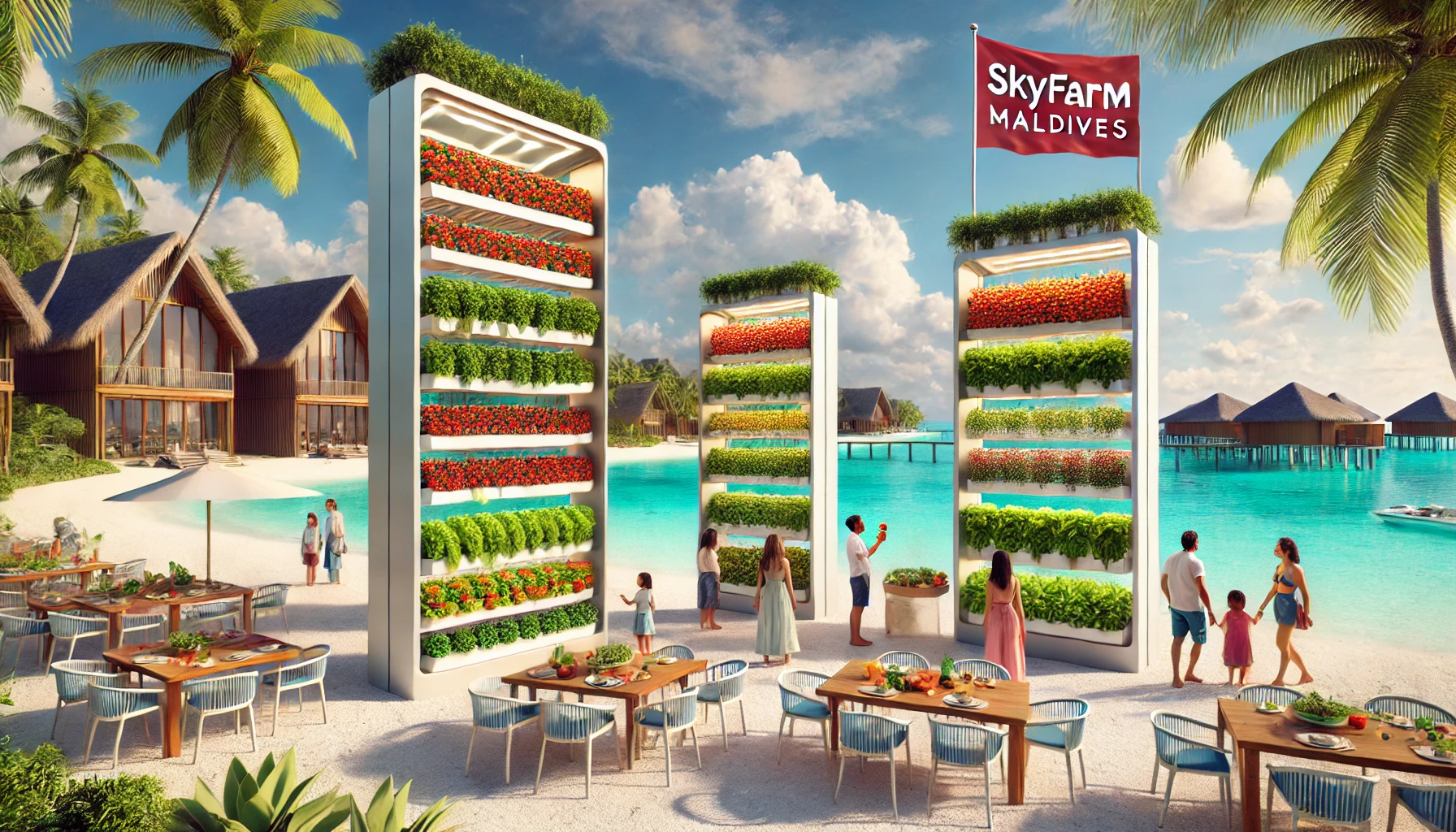
With our hands-on experience in greenhouse farming, we ensure you get the best climate control systems and save money through expert negotiations.
Our consultation fees are always offset by the savings we find for you.Let us help you create a successful farming operation with the right greenhouse, without the hassle!
The cost for a fully climate-controlled greenhouse typically ranges from $140-$300 per square meter, depending on location, offering a sustainable solution at a competitive price. This includes all necessary equipment (excluding shipping) but does not cover foundation costs.
A 1000 m² greenhouse can be built in 30-45 days with a team of 8 workers, making it a quick and efficient investment for your resort. With 2 × 40-foot containers required for shipping, this setup ensures minimal space and maximum yield.
Additionally, we can provide expert engineers to supervise the construction process, ensuring quality and efficiency.
By growing your own produce on-site, you’ll not only reduce dependency on imported goods but also provide guests with fresh, sustainable meals, enhancing the overall resort experience while reducing operational costs.
Let Sky Farm guide you through the process with our tailored consultancy services.
With every Tower Farm purchase, you’ll receive 2 complimentary days of on-site installation supervision and staff training, ensuring your team is fully prepared. Additional days are available for $300 per person per day.
For more advanced project development, including crop strategies, system integration, and expansion plans, our consultation fee is $100 per hour for the first 50 hours, with a $5000 retainer required upfront. After the initial 50 hours, the rate drops to $80 per hour.
Travel costs are billed at $300 per person per day, and clients are responsible for travel, accommodation, and meal expenses.
Let us help you create a sustainable, high-performance Tower Farm in the Maldives!
SKY FARM FAMILY
Contact
- Malé, Kaafu Atoll, Maldives
- 1st Floor, G.Bodufenvalhuge, Annex Building, Malé 20138
- +960-7919885 - Maldives
 +66-80 626 9615 - Bangkok
+66-80 626 9615 - Bangkok- secretary@skyfarmmaldives.com
- 0900-1700 Local time
